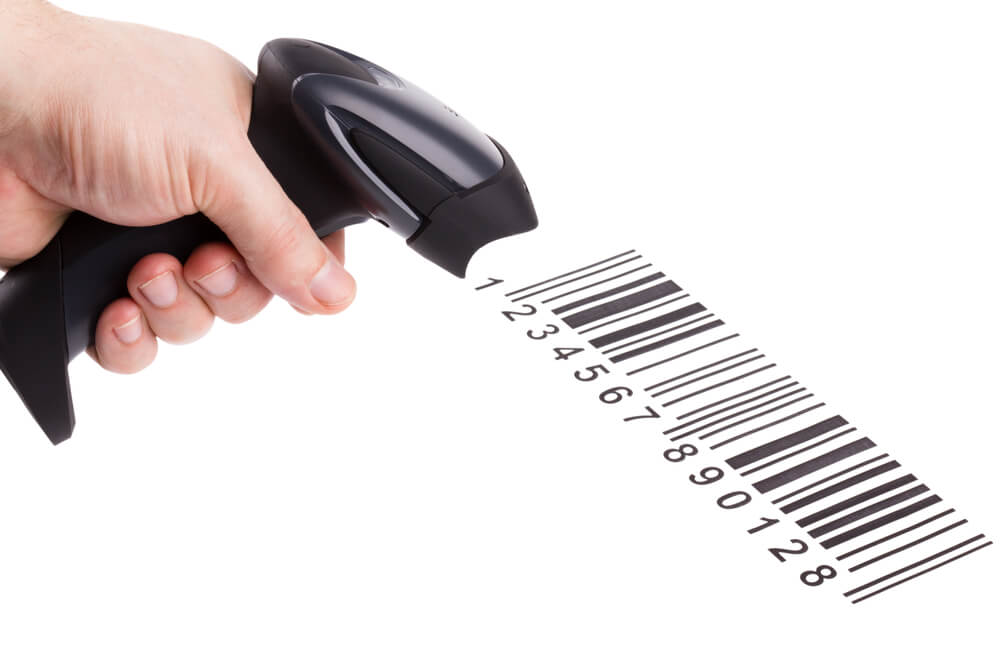Compact Barcodes Scanners for Seamless Inventory Tracking Anywhere
Compact Barcodes Scanners for Seamless Inventory Tracking Anywhere
Blog Article
Picking the Right Barcode Scanner for Your Company Requirements
Choosing the suitable barcode scanner for your company needs a nuanced understanding of your particular functional demands and ecological problems. Elements such as scanner type, speed, and compatibility with existing systems play a pivotal duty in figuring out the ideal option.
Comprehending Barcode Scanner Types
When it comes to picking a barcode scanner, recognizing the various types available is essential for meeting details service requirements. Barcode scanners can be categorized right into a number of types, each made for various applications and atmospheres.
Fixed-mount scanners, on the various other hand, are developed for high-volume scanning applications, usually located in setting up lines or check out counters. These scanners are placed in a fixed placement, permitting for fast scanning of numerous products in succession.
An additional type is the mobile computer system, which combines scanning abilities with calculating power. These devices are excellent for field procedures or storehouse management, allowing information collection and real-time inventory tracking. Furthermore, there are commercial scanners that are built to hold up against severe atmospheres, such as severe temperatures or direct exposure to dust and wetness.

Trick Attributes to Consider
What important attributes should companies focus on when choosing a barcode scanner? Scanning rate is important, as faster scanners boost functional effectiveness, particularly in high-volume settings. The scanner's capacity to review different barcode styles is likewise important; ensure it supports preferred kinds like QR codes, UPC, and Code 128 to fit diverse inventory products.
Toughness is one more crucial feature, especially for organizations in sturdy setups. Seek versions that are developed to stand up to decreases, dust, and dampness. In addition, take into consideration the connectivity choices available; whether you choose USB, Bluetooth, or Wi-Fi, the right connection can improve integration with existing systems.

Analyzing Your Company Setting
To successfully pick a barcode scanner, companies have to take supply of their specific operational setting. This assessment includes reviewing the physical layout of the office, the nature of the products being scanned, and the regular conditions under which scanning occurs. A retail setting might require handheld scanners that can rapidly refine deals at the check out, while a stockroom setup might benefit from ruggedized scanners developed to withstand harsher problems.
Additionally, think about the volume of scanning needed. High-throughput settings might demand innovative scanning modern technologies, such as fixed-position scanners or mobile devices that can operate effectively in hectic circumstances. The assimilation capacities with existing supply monitoring systems also play an important role; ensure the chosen scanner can flawlessly get in touch with software program systems being used.
A scanner that meets current needs could not be enough as business expands. By extensively examining these elements, businesses can pick a barcode scanner that not just meets prompt requirements but likewise supports lasting operational effectiveness and adaptability. barcodes scanners.
Budgeting for Your Scanner
Having actually evaluated the operational atmosphere and identified the particular needs for a barcode scanner, the following step entails careful budgeting to make certain a wise economic investment. Establishing a spending plan begins with identifying the overall expenses related to the scanner, including first purchase cost, functional expenses, and possible maintenance costs.
When selecting a barcode scanner, take into consideration the variety learn this here now of offered alternatives, from handheld devices to fixed-position scanners, as rates can vary dramatically. It is necessary to stabilize cost with performance; going with a more cost effective version may cause increased operational ineffectiveness if it does not fulfill your business demands.
Along with the equipment, consider expenses associated to software more helpful hints program, training, and potential upgrades. While it could be appealing to decrease ahead of time expenditure, purchasing a high quality scanner that lines up with your functional demands can produce lasting cost savings with enhanced performance and reduced downtime.
Finally, consider the overall price of ownership, which incorporates the scanner's life expectancy and potential resale worth. By thoroughly planning your budget plan, you can ensure that your financial investment in a barcode scanner will boost your functional efficiency and economic efficiency.
Assimilation With Existing Solution
Integrating a barcode scanner with your existing systems is essential for maximizing its performance and ensuring smooth operations. barcodes scanners. A well-integrated scanner boosts process performance, minimizes errors, and increases data handling. When choosing a barcode scanner, consider compatibility with your existing software program and equipment framework, including your stock monitoring systems, point-of-sale (POS) systems, and enterprise source preparation (ERP) solutions
Assess whether the scanner utilizes typical procedures such as USB, Bluetooth, or Wi-Fi, which can facilitate very easy integration. In addition, address evaluate whether the scanner's software program provides APIs or SDKs that permit for customization and assimilation with exclusive systems. This is particularly vital for businesses with unique functional requirements.
As your organization expands, your systems need to be able to fit extra scanners and manage raised data volumes without significant reconfiguration. Inevitably, spending in a barcode scanner that flawlessly incorporates with your existing systems will produce long-lasting benefits, boosting precision, effectiveness, and total performance within your operations.

Conclusion
In conclusion, choosing an ideal barcode scanner requires a comprehensive examination of numerous variables, consisting of scanner kinds, necessary features, and the particular organization setting. Proper budgeting for both acquisition and operational prices is crucial, along with making certain compatibility with existing systems. By meticulously thinking about these aspects, businesses can improve effectiveness and productivity, ultimately causing enhanced functional results. The best barcode scanner works as a vital tool in enhancing processes and helping with efficient stock administration.
Report this page